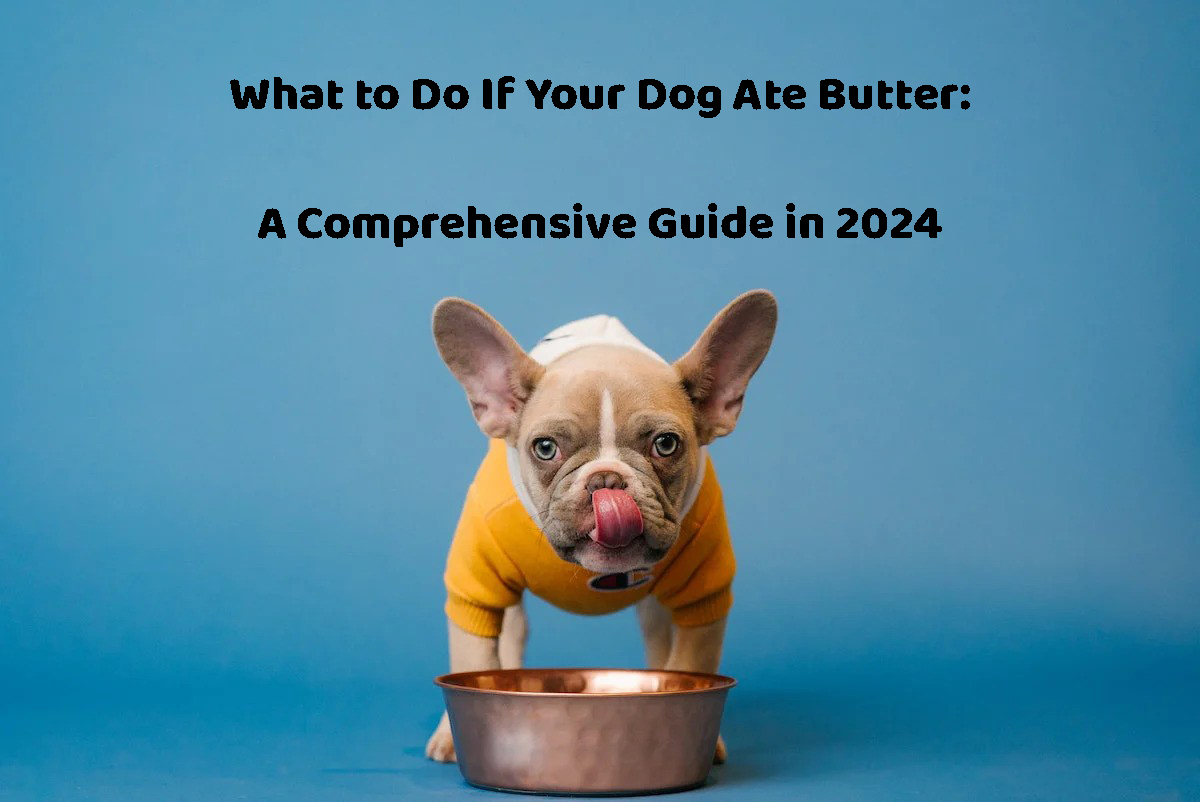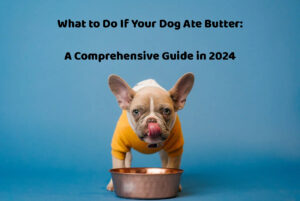Introduction
Dogs are known for their curious nature and love for food, which can sometimes lead them to indulge in something they shouldn’t like butter. If your dog has eaten butter, you may be wondering whether it’s a cause for concern and what steps you should take. In this article, we’ll explore the potential effects of butter on dogs, what to do if your dog consumes it, and tips for preventing similar incidents in the future.

Why Do Dogs Love Butter?
Dogs are often attracted to the smell and taste of butter due to its high fat content and rich flavor. Fatty foods can be enticing to pets, but this doesn’t mean they’re healthy or safe. Understanding why your dog might go after butter can help you manage their diet and prevent future mishaps.
Read Also:Ibomma Telugu Movies
1. Taste and Texture
Butter has a creamy texture and a savory flavor that many dogs find irresistible. This can lead to them raiding your kitchen or snatching a piece of food that has been prepared with butter.
2. Curiosity
Dogs are naturally curious animals. If they see or smell something unfamiliar, such as butter on a counter, they may feel compelled to investigate, often resulting in them consuming the item.
Is Butter Safe for Dogs?

While butter is not toxic to dogs, it is not an ideal food for them either. Here are some potential concerns regarding butter consumption:
1. High Fat Content
Butter is high in saturated fat, which can lead to digestive upset, including diarrhea or vomiting, especially if your dog consumes a large amount.
2. Pancreatitis Risk
Feeding dogs fatty foods like butter can increase the risk of pancreatitis, a serious inflammation of the pancreas. Symptoms of pancreatitis include abdominal pain, lethargy, and loss of appetite.
3. Weight Gain
Regular consumption of high calorie foods like butter can contribute to obesity in dogs. Maintaining a healthy weight is essential for your dog’s overall well being.
What to Do If Your Dog Ate Butter

If you catch your dog munching on butter, here are the steps you should take:
1. Assess the Situation
First, determine how much butter your dog has consumed. A small lick may not be harmful, but a larger quantity could lead to gastrointestinal upset or other issues.
2. Monitor for Symptoms
Keep an eye on your dog for any signs of discomfort or distress. Common symptoms to watch for include:
- Vomiting
- Diarrhea
- Lethargy
- Abdominal pain
- Loss of appetite
If you notice any of these symptoms, it’s important to take action.
3. Contact Your Veterinarian
If your dog has eaten a significant amount of butter or is showing symptoms of distress, call your veterinarian. They can provide tailored advice based on your dog’s size, age, and overall health.
4. Avoid Inducing Vomiting
While you may be tempted to induce vomiting, do not attempt this without consulting your veterinarian first. In some cases, inducing vomiting can do more harm than good, especially if your dog is experiencing gastrointestinal issues.
5. Provide Plenty of Water
Ensure your dog has access to fresh water. Staying hydrated can help flush out any excess fat from their system.
Read Also: The Best Basenji Yodels – Best Guide 2022
Preventing Future Incidents

Once you’ve dealt with the immediate situation, consider these tips to prevent your dog from eating butter in the future:
1. Secure Food Items
Store butter and other fatty foods in sealed containers or in areas that are out of reach for your dog. Keeping food items secured can help reduce the chances of accidental consumption.
2. Train Your Dog
Teach your dog commands like “leave it” or “stay” to discourage them from approaching food that isn’t theirs. Positive reinforcement can be effective in training your dog to ignore tempting foods.
3. Provide Healthy Alternatives
If your dog loves the taste of butter, consider offering healthy alternatives, such as peanut butter (without xylitol) or dog safe spreadable treats. These options can satisfy their cravings without the risks associated with butter.
4. Establish a Routine
Maintaining a regular feeding schedule can help reduce your dog’s desire to scavenge for food. Ensure they are getting the right amount of food and treats based on their size and activity level.
When to Seek Veterinary Care
While butter is not inherently toxic to dogs, it can lead to health issues if consumed in excess. Always err on the side of caution. If your dog exhibits any of the following symptoms after consuming butter, seek veterinary care immediately:
- Severe vomiting or diarrhea
- Signs of pain (whining, pacing, refusal to eat)
- Lethargy or unusual behavior
- Swelling in the abdomen
Conclusion

If your dog has eaten butter, it’s important to assess the situation and monitor them for any signs of distress. While a small amount may not pose a serious threat, larger quantities can lead to digestive issues or more serious health concerns. Always consult your veterinarian for personalized advice and treatment options.
Preventing future incidents involves securing food items, training your dog, and providing healthy alternatives. By taking these steps, you can help ensure your dog stays safe and healthy.
Read Also: When Is An Aussiedoodle Full Grown – Best Guide in 2022